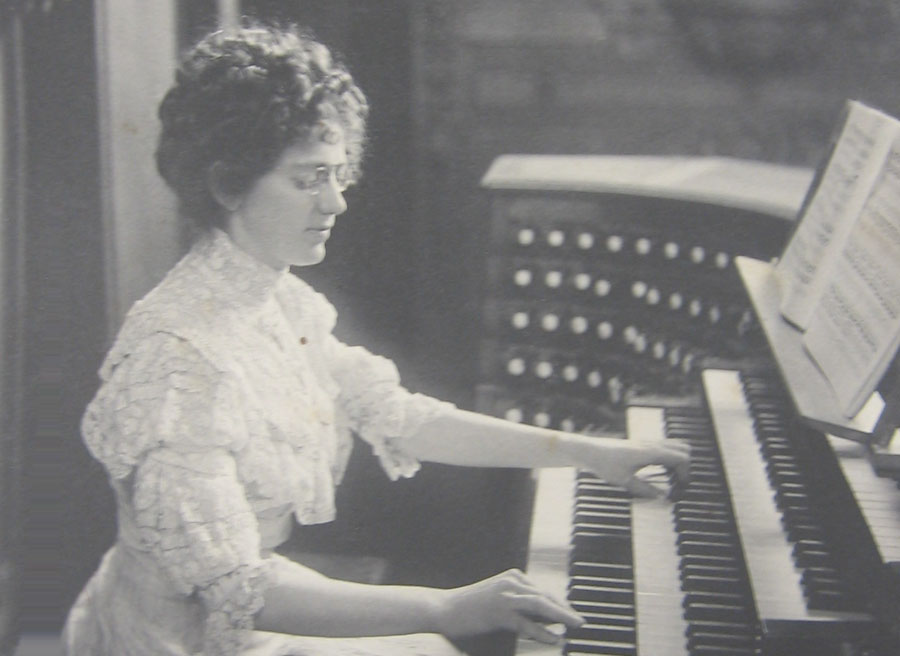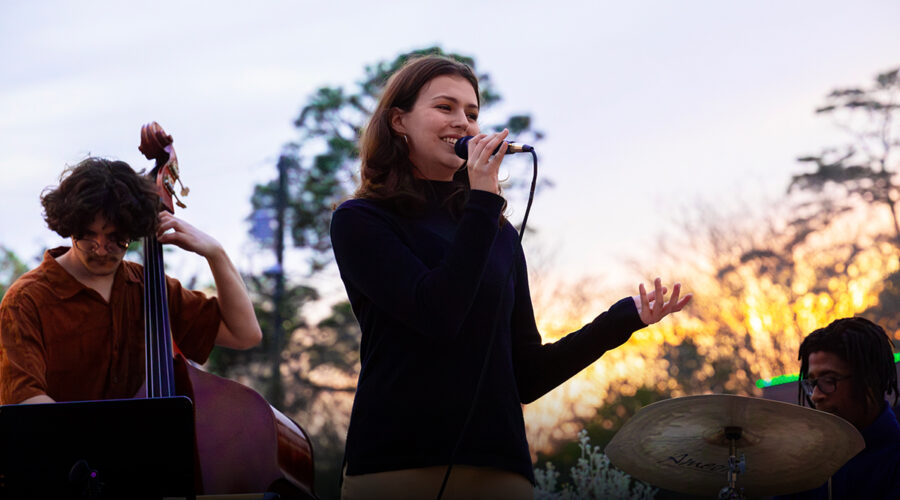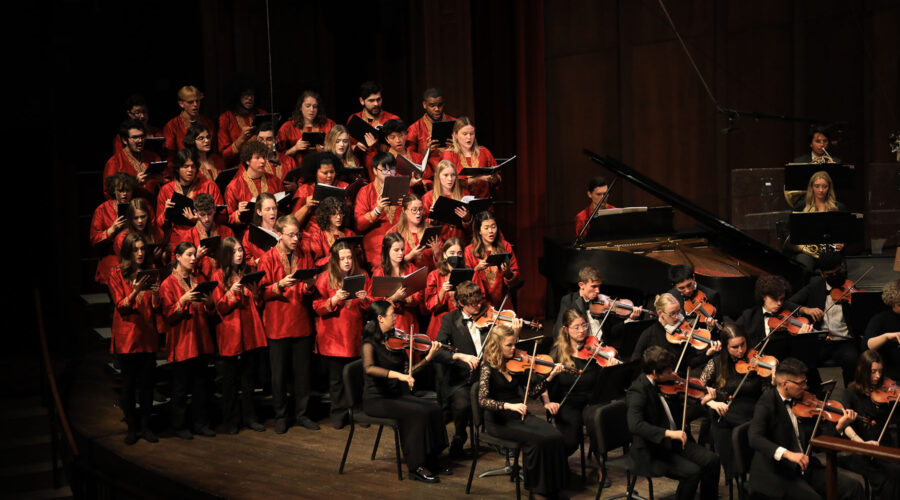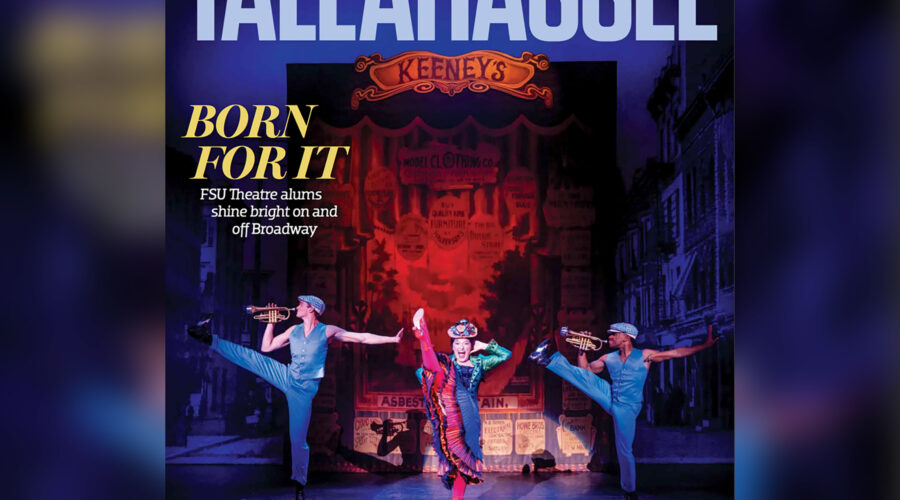by Patricia J. Flowers
Who was this bold woman who exceeded cultural norms and left such a legacy?
The history of Florida State University is well documented, reaching back to its beginning as the West Florida Seminary that was founded in 1851 and began operating in 1857, only twelve years after Florida achieved statehood. The name was changed in 1863 to The Florida Military and Collegiate Institute to reflect the addition of cadet training. The College of Music traces its roots to 1901 when the institution was re-named Florida State College where music was one of four original departments. A few years later, a legislative act formed two state institutions of higher learning: University of Florida in Gainesville, designated as a men’s school, and Florida Female College in Tallahassee. The name was changed to Florida State College for Women (FSCW) in 1909. Thus, in a span of just over 50 years, the primary institution of higher education in Tallahassee had been a seminary, a coeducational liberal arts school, a military institute, and a women’s college. Shortly after the establishment of FSCW, Ella Scoble Opperman was brought to Tallahassee to lead the music department. She arrived in 1911 and served as dean until her retirement in 1944. Three years after her tenure as dean, FSCW again became coeducational and was called Florida State University. Upon her retirement, Dean Emeritus Opperman led an active life in Tallahassee until her death in 1969 at age 95.
Ella Scoble Opperman (b. 1873) grew up in Aurora, Indiana, across the Ohio River from Cincinnati, Ohio. Her father was a merchant and store owner and her mother was at home. The family seemed to be reasonably well off and were strong proponents of education as evidenced by the study and travel they afforded their two daughters. Ella graduated with the A.B. degree from Wesleyan College of Cincinnati at age 16, then went on to earn an Artist Diploma in Piano and a Master of Music degree from the Cincinnati Conservatory of Music. She subsequently spent several years in Berlin and Paris studying music performance with well-known pedagogues. It is likely that she had heard German at home, the native language of her Alsatian-born father. Her travel journals suggest that she knew both German and French, allowing her to fully engage in European cultural life during 1900-01 and again in 1907-09. Back in the states, she gave recitals and taught piano and organ at several institutions including Wesleyan College in Macon, Georgia, where she was praised for her curricular work. After a period of short term appointments, concertizing and teaching, Ella Scoble Opperman was invited in 1911 by FSCW President Edward Conradi to direct the music program and develop a curriculum leading to a bachelor’s degree. Over the next several decades, Dean Opperman increased the number of music degrees and certificates offered, hired a larger and more highly qualified faculty, and substantially grew the number of music majors. A detailed chronology of this growth is presented in her book, Annals of the School of Music written in 1947.
What is not included in the Annals are reports of Dean Opperman’s travels, professional leadership, recognition, and personal interests. For example, she bought her first automobile in 1919 and toured the state of Florida with her parents, giving organ recitals that were praised by the press. The Palm Beach Times (June 21, 1919) reported that “Miss Opperman holds the distinguished place of being the foremost pianist and organist in the state and it is a matter of congratulation to the college at Tallahassee to have her the director of its music department.” In 1925, she performed an inaugural recital series on the 4-manual Skinner organ at the University of Florida, one year after a new Skinner organ had been installed to her specifications in the Administration Building at FSCW. Dean Opperman’s duties at FSCW included performing solo and chamber music, organ recitals and Vesper services in addition to serving as organist at local churches. Thus, she maintained an active career as a performing musician in addition to myriad teaching and administrative responsibilities.
Dean Opperman was proactive in securing FCSW’s institutional membership in the National Association of Schools of Music (NASM) that was newly formed in 1928. Her initial letter of inquiry was dated November 13, 1930. There was a site visit in Tallahassee that December, and membership was approved at the NASM meeting held in St. Louis on December 30, 1930. Shortly thereafter, Ella Scoble Opperman was invited to serve as a Vice President of the NASM and later as a member of its Ethics Committee. She also assumed leadership roles with the Music Teacher’s National Association (MTNA) and the Florida State Music Teachers Association (FSMTA). Not one to rest on titles alone, Dean Opperman was an active participant in each of these organizations and there are examples of her viewpoints and decisions contained in published articles and archival materials.
Ella Scoble Opperman witnessed powerful social, cultural, educational, and political changes during her long life. She was born only eight years after the Civil War ended and died five years after passage of the Civil Rights Act of 1964. She saw ratification of the 19th Amendment in 1920, prohibiting states or the federal government from denying U.S. citizens the right to vote on the basis of sex. The small town of Tallahassee she experienced upon arrival in 1911 grew to a population of nearly 60,000 by 1960. As a young woman she commented on the inconvenience of horse-drawn wagon ruts in the streets of Tallahassee, but traveled by train, ship, automobile, and airplane as the 20th century progressed. She lived through two world wars and, always optimistic, wrote near the time of her retirement in 1944 that “We are living now in a period when there is plenty of money for necessities and luxuries…. Our music associations must look forward and plan how to meet conditions that will arise when this second World War is over.”
Dean Opperman led a full life in the 25 years following her retirement: writing, traveling, socializing, attending church, going to recitals, and keeping up with correspondence, appointments, and business matters. She was at one time an active member of the local Audubon society and reported that her chief hobby was “the study of birds in their habitat.” During her travels she kept long lists of birds and flowers, and peppered her notebooks with recipes, quirky observations, and concerts attended. There is no doubt that Ella Scoble Opperman was an influential figure in the development of music in higher education at Florida State University and nationally. She was well-connected and respected by leaders at the highest reaches of the profession. Her tireless work in building the size, quality, and reputation of the FSCW School of Music is the strong foundation upon which stands the remarkable FSU College of Music as we know it today.



